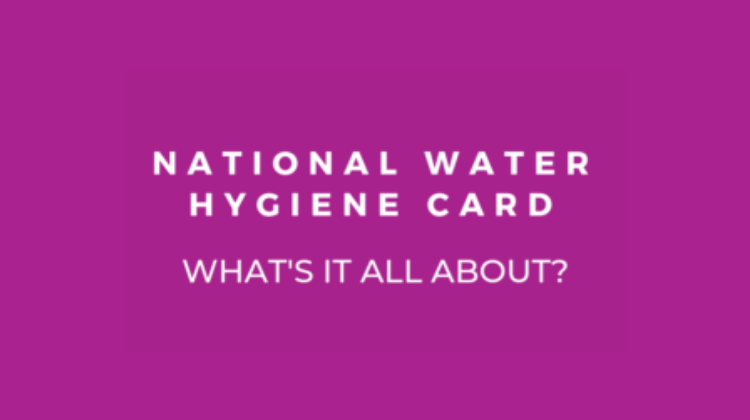National Water Hygiene Card: What’s it All About?

A National Water Hygiene Card has become a regular requirement for anyone wishing to gain access to restricted water sites.
But, what is a National Water Hygiene Card? And, how do you obtain one?
This post will cover the basics of the Water Hygiene Card including its background and the training required to acquire the card.
Water Hygiene Background
The National Water Hygiene Card (also referred to as the ‘Blue Card’) was created in 2006 by the Energy & Utility Skills Register to promote safe and hygienic practices around drinking water supplies.
Since it has become a requirement for anyone wanting access to restricted water sites because holders understand the hygienic practices required whilst working with the drinking water supply.
Sites which require the card include:
- Service reservoirs
- Water pumping stations
- Water treatment works
- Wells
- Springs and boreholes
- Water mains and service pipes
Common job roles which require a Blue Card are:
- Contractors
- Engineers
- Environmental Health Practitioners
Let’s move onto Water Hygiene training.
National Water Hygiene Card Training
You will need to attend a half-day training course, led by a EUSR registered tutor, to obtain your Blue Card.
Then, pass the short test at the end and you will receive your EUSR National Water Hygiene card.
Your card is valid for 3 years and needs to be renewed after this time if you still require access to sites.
On the course, candidates will cover:
- The Importance of Personal Hygiene
- Hygiene Code Awareness
- Awareness of Potential for Contamination
- Fuel, Diesel and Chemical Contamination
- Pipe Storage
- Pets & Livestock Risks
- Chlorination, Disinfection & Cleaning
- Incident Reporting
- Approved Products
- Sampling and Audits
Note: You are required to complete a health screening questionnaire prior to attending the course.
Candidates that have experienced any of these illnesses need medical clearance before registration to EUSR:
- Typhoid
- Paratyphoid
- Dysentery
- Persistent Diarrhoea or Vomiting
- Jaundice
- Prolonged Unexplained Fever
Hopefully, you now know, the how what and why of the National Water Hygiene Card and are ready to get your training.
For all our upcoming course dates, visit our National Water Hygiene Course Page.

